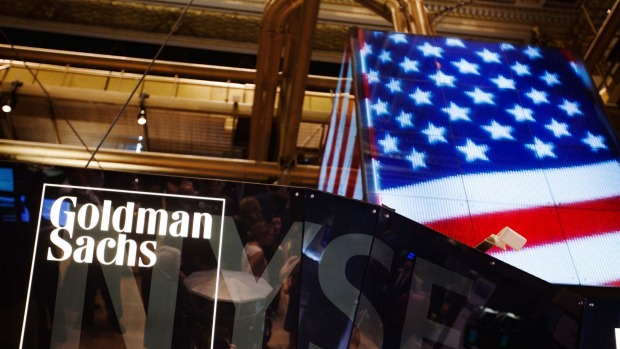Wall Street deaths: Is it stress that killed the young Indian banker?
Last week, Thomas Hughes, a 29-year-old banker with Moelis & Co, fell to his death from a Manhattan building leading to speculation that it was suicide. It rekindled memories of the tragedy of April 16, when 22-year-old Sarvshreshth Gupta, a Goldman Sachs employee, was found dead near his office. While investigations into the cause of death are under way, his father, Sunil Gupta posted online a long essay, expressing his grief and emphasizing also that his son had been under extreme pressure at work.

A father’s anguish
These are excerpts from Sunil Gupta’s essay on his son’s tragic death:
Beginning of the End
Spring, 2015
San Francisco
The New Year began modestly and silently… My heartthrob, my son was settling down well in his job. His phone calls, were far and few, he was extremely busy, but mails and messages were keeping the life line working.
From mid-January, he started complaining. ‘This job is not for me. Too much work and too little time. I want to come back home.’
As probably, any parent would react, we counselled him to keep going… Gradually, his complaints, his discomfort with his job increased in intensity and frequency. Our mails, our messages our phone calls continued to empathize with him, but we did not give him an open mandate to quit, as he probably, wanted.
In third week of March 2015, he submitted his resignation, without consulting us, and called us. My first sentence to him was, ‘Sonny I did not want you to quit, but now since, you have done so, we are with you. Come back home’. He sounded sad and disturbed, ‘Papa, it will take some time to exit. HR will close in some time.’ I asked, ‘What you want to do now?’ ‘Well, I will rejuvenate myself, eat home cooked food, walk and go to gym, and finally work with and expand our school,’ he replied.
Not something I wanted him to do, at this stage of his career. I desired, that he should complete his one year at Goldman Sachs, learn something about corporate life and then decide… By a quirk of fate, he was asked by his company to reconsider his resignation and under pressure from me, he rejoined.
Now, I, who had nurtured him, carved him, possessed him, took the fatal decision for him. Why did I ask him to continue? Why didn’t I ask him to come back? What if I had not forced him to continue? What if his company had not given him the window to reconsider his resignation?
These painful questions will never be answered. There is no power in this universe which can undo the tragedy that hit us. Poor son, he rejoined and did his best to come to terms with hard, continuous work, no breaks, no sleep and no respite.
April, 16, 2015, 3.10 pm, India time. That is, +12.30 hours California time. He calls us and says, ‘It is too much. I have not slept for two days, have a client meeting tomorrow morning, have to complete a presentation, my VP is annoyed and I am working alone in my office.’
I got furious. ‘Take fifteen days leave and come home’, I said. He quipped, ‘They will not allow’. I said, ‘Tell them to consider this as your resignation letter.’
Finally, he agreed to complete his work in about an hour, go to his apartment which was half a mile from his office block and return in the morning.
The dawn never came in our lives, my sonny boy, never reached his apartment.
A monster, a devil in his giant motor vehicle, snuffed the life out of him.
My son, whose bones, blood and flesh were my very own, was victim of a cruel, momentary lapse of an individual, who too, is surely somebody’s son.
The San Francisco police may finally trace him, the law may give him the severest of punishments, but, who will give me my son back?
……
Is it more than coincidence?
In the wake of these deaths, Andrew Ross Sorkin wrote in the New York Times:
Just last week, Thomas J. Hughes, a 29-year-old banker at Moelis & Company, was found dead with drugs in his system after falling from a building in Manhattan.
‘The only explanation is that I know he’s been working very hard and has been under a lot of pressure,’ Mr. Hughes’s father told The Daily Mail. ‘His work did not leave much time for enjoyment, but that’s the nature of the assignment that he chose.’ An investigation is pending to determine the official cause of death.
Still, the string of deaths on Wall Street appears to rise above the level of simple coincidence. Last February, Fortune ran an article titled: “Is there a suicide contagion on Wall Street?”

Michael J. Moore wrote on Bloomberg.com:
Wall Street firms including Goldman Sachs have sought in recent years to improve the experience for their new recruits, who carry out the Excel and Powerpoint grunt work that goes into presentations and ideas for clients. The shift, prompted by the 2013 death of a Bank of America Corp. intern, has been driven in part by a fear that the brightest college graduates don’t view investment banking as a sustainable career.
Goldman Sachs hired larger classes of analysts, the title held by entry-level bankers, and encouraged them to stay out of the office on Saturdays. The firm also stopped offering analysts two-year contracts, making them full-time employees from the start.
Still, 100-hour weeks aren’t unheard of, and a client request can easily wreck a junior employee’s weekend. Gupta’s late nights on the technology, media and telecom banking team would have helped serve some of the firm’s highest-profile clients.

OMG-inducing, share-compelling, like-attracting, clutter-breaking, thought-provoking, myth-busting content from the country’s leading content curators. read on...
